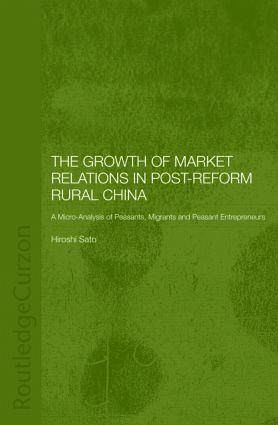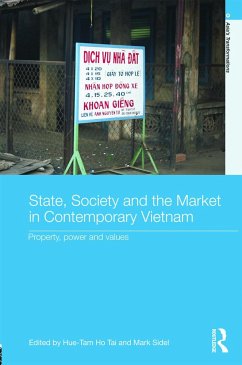
The Growth of Market Relations in Post-Reform Rural China
A Micro-Analysis of Peasants, Migrants and Peasant Entrepeneurs
Versandkostenfrei!
Versandfertig in 1-2 Wochen
213,99 €
inkl. MwSt.
Weitere Ausgaben:

PAYBACK Punkte
107 °P sammeln!
This book, based on in-depth field research at the local level, assesses the different factors that are contributing to the transition to a market economy and the growth of networks in rural China. It analyses the different socio-economic actors - peasant households, out-migrants, family businesses and peasant entrepreneurs, uses the key concept of markets as a nexus of social networks, and identifies three different kinds of 'social capital' - human capital, political capital/status, and network capital. This book demonstrates the importance of socio-political networks and highlights signific...
This book, based on in-depth field research at the local level, assesses the different factors that are contributing to the transition to a market economy and the growth of networks in rural China. It analyses the different socio-economic actors - peasant households, out-migrants, family businesses and peasant entrepreneurs, uses the key concept of markets as a nexus of social networks, and identifies three different kinds of 'social capital' - human capital, political capital/status, and network capital. This book demonstrates the importance of socio-political networks and highlights significant regional differences.













